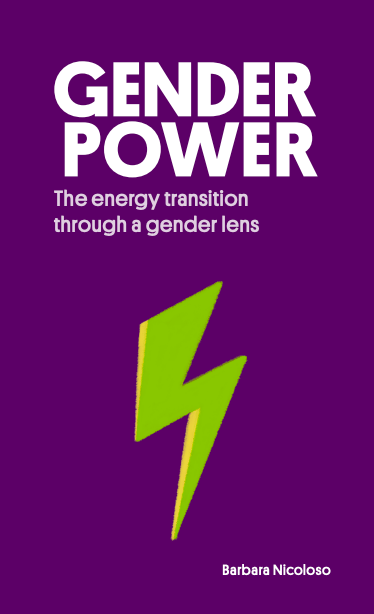Gender Power – The Energy Transition Through A Gender Lens
Gender often remains a blind spot in energy policies of the European Union and its Member States. Yet, our relationships to energy are deeply gendered. Women are, for example, disproportionately affected by energy poverty and climate change, while remaining underrepresented in the energy sector and its governance. These inequalities are rooted in our society’s dependence on fossil fuels and the patriarchal systems that sustain them.
How can we move away from fossil fuels and carry out a socially just energy transition while reducing gender inequalities? In her new essay, Gender Power, Barbara Nicoloso explores the deep historical links between gender and energy and skillfully outlines a path toward an equitable and just energy transition.
About
This essay is divided into three chapters, which take stock of gender inequalities in Europe, analyse the links between fossil fuel energy systems and gender inequalities, and then identify ways of avoiding their reproduction in a model based on sufficiency, efficiency and renewable energy. The aim is also to show how transition policies, and in particular energy sufficiency policies, can be levers for reducing gender inequalities. Finally, we will set out the political conditions necessary for the fight to preserve the environment and the societal fight for gender equality to go hand in hand.
The aims of this essay are in line with those of the Green European Foundation: to move the political and public debate forward, towards a more social and sustainable Europe;
to support elected representatives and local actors in implementing a just transition; to promote inclusive policies to achieve Europe’s climate and energy objectives; and to ensure that the energy transition does not amplify social, ethnic and gender inequalities and can, on the contrary, help to reduce them. The essay is based on the available scientific and institutional literature on the subject, as well as interviews conducted with stakeholders with field actors as part of a Knowledge Community composed of representatives from associations, research centres, local governments, and elected officials. This group met from September 2023 to April 2024 to discuss the gender dimension of the energy transition in both the French and European contexts. This Knowledge Community also led to the publication of the policy brief “Putting Gender at the Heart of the EU Energy Transition”, co-authored by Barbara Nicoloso, which you can find by clicking here.

